'I gave myself two weeks to come up with a business idea'
- Published
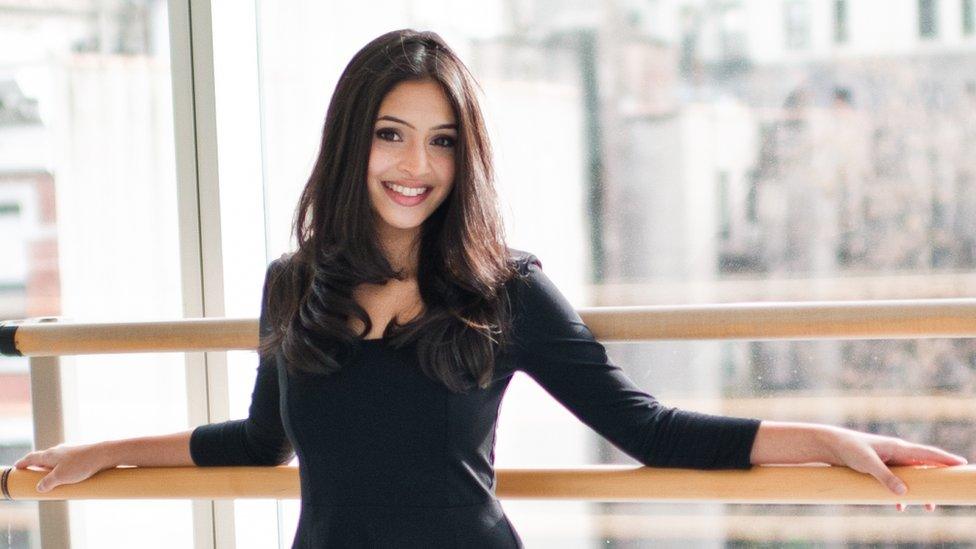
Payal Kadakia got inspiration from struggling to book a ballet class for herself
The BBC's weekly The Boss series profiles a different business leader from around the world. This week we speak to Payal Kadakia, founder of fitness class booking website ClassPass.
Could you come up with a strong idea for a business in just 14 days?
That was the challenge Payal Kadakia set herself back in 2010, when the then 27-year-old wanted to quit the corporate world and set up her own venture.
Working for record label giant Warner Music Group in New York at the time, she had been inspired to try to run her own company after a holiday to northern California.
"I had gone to San Francisco and met a lot of entrepreneurs," says Payal, now 35. "I thought, 'what if I could come up with an idea?' So I gave myself two weeks."
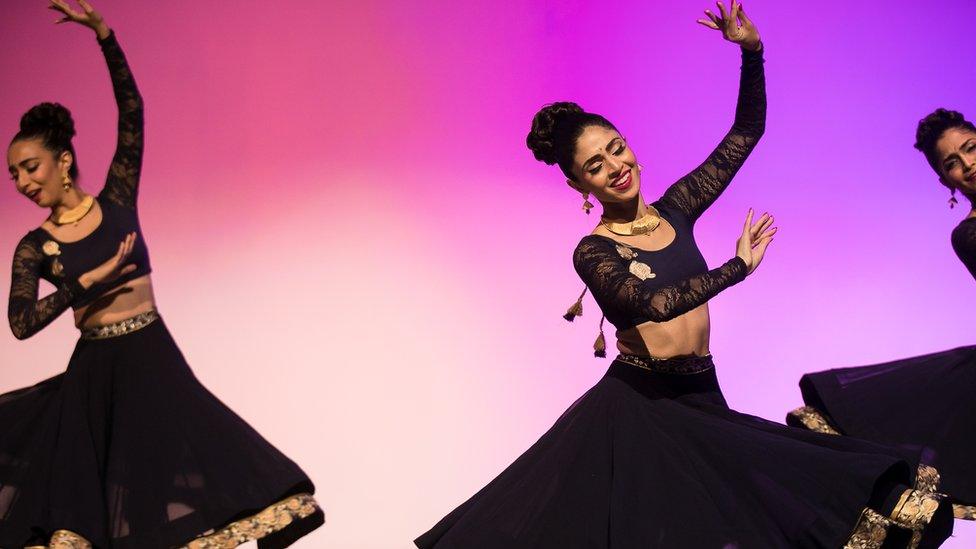
Payal (centre) has enjoyed taking part in traditional Indian dances since she was a small child
Fortunately for Payal, the lightbulb moment struck just 36 hours into the challenge she had set herself.
An avid dancer and fitness enthusiast, she was struggling to book a ballet class back in New York.
"I visited six different websites, and I couldn't tell if the class was right for me," she says. "An hour had gone by, and I'd still not booked anything."
So there and then Payal came up with the idea of creating a website that would collate dance and fitness classes from across the city, and allow users to book them all from that one place. She would then charge the gyms and dance class providers a commission per booking.
After six months of researching her business idea, she quit her day job in January 2011 to start work on the first iteration of ClassPass. Today the New York-based business is said to be worth $470m (£375m),, external and is available across the US, and in nine other countries including the UK, Canada and Australia.
Meanwhile, Forbes magazine estimates that Payal - who was born and raised in New Jersey to parents who had emigrated from India - has a personal fortune of more than $50m. , external
It hasn't all been plain sailing for the business though, with Payal needing a number of attempts to find the best business model.
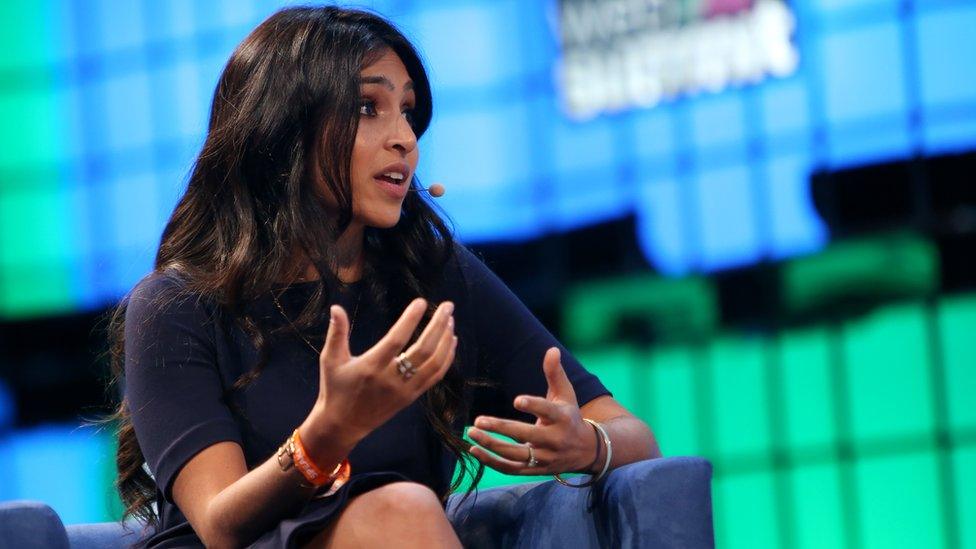
Payal Kadakia regularly speaks at technology and entrepreneurship events
Back in 2011 she gave herself two years to make a success of ClassPass, which was initially called Classtivity. "I had two years to live off what I had saved," she says.
Raising $500,000 from friends and family, Classtivity launched to the public in 2012 - and was initially a flop.
Looking back she says that while there was a lot of buzz about the launch it didn't translate into enough sales.
"We had to take a hard look [at the business]."
What Payal decided to do in 2014 was to stop allowing users to book individual classes on an ad hoc basis, and instead switched ClassPass to a package-based model.
Firstly it offered 20 classes a month for a set fee, but then lowered that to 10 when it realised that most people didn't have time to attend 20 classes a month.
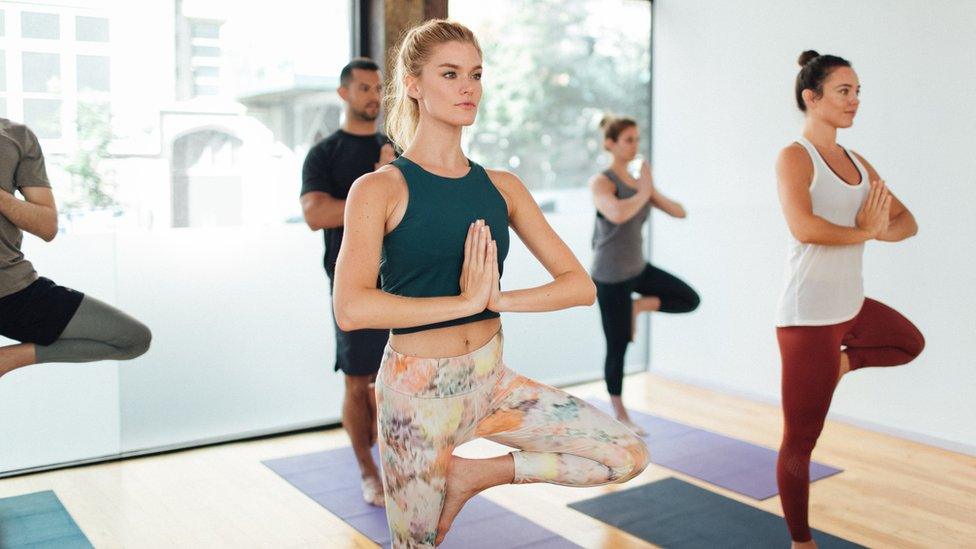
It took ClassPass a while to find its preferred business model
Today the packages are sold on a subscription basis, and instead of users being able to book a certain number of classes a month, they are now given between 25 and 100 credits instead.
The gym owners and fitness class organisers are then paid a predetermined amount per ClassPass attendee.
The more expensive or popular a certain class is, the more credits a ClassPass user has to redeem in order to join. For example, a near full yoga session might be nine credits, while a less busy box-fit class could only be four credits.

More The Boss features:

The fact that the business model has changed a number of times has not been without criticism, but Payal says that all the changes were necessary as the company tried to find a way of doing business that best worked financially.
"We never wanted to keep switching things up," she says. "[But] we wouldn't be here if we hadn't changed."
Despite the changes along the way, ClassPass has seen its popularity soar in recent years. The company now claims to have handled close to 60 million class reservations via its website and app, and it has 14,000 gyms, dance classes and other venues and businesses on its books.
While the private company won't reveal its annual turnover, it has now secured more than $173m from outside investors including Google.
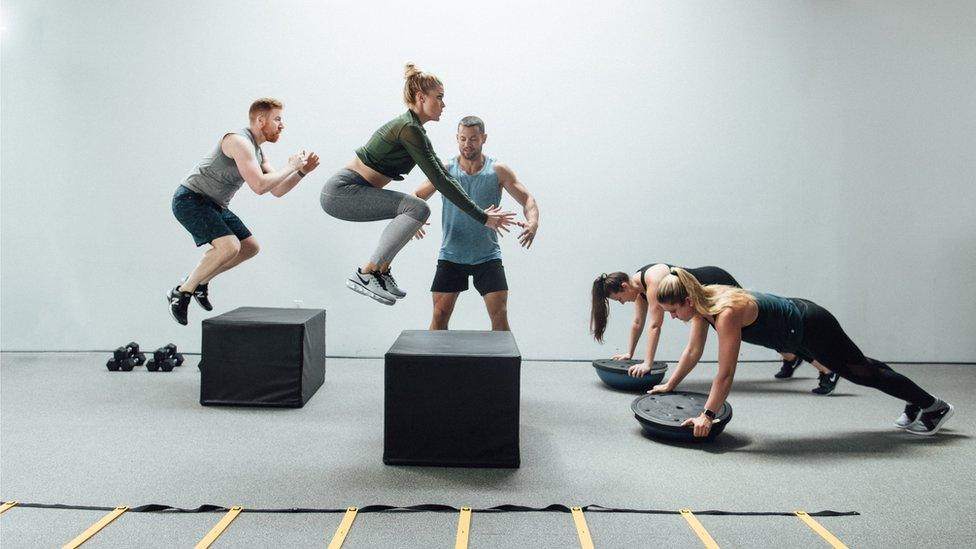
ClassPass is now available in 10 different countries
Zameira Hersi, a leisure analyst at research group Mintel, says that the company's success is down to how convenient it is for people to use.
"By making it easy to find, book and pay for classes, ClassPass helps to remove some of the barriers to being active," she says.
However, Ms Hersi adds that the firm's prices might put a limit on future growth, because "many people may feel that they get more for their money if they stick with their current gyms".
To drive further expansion the company is now also enabling users to book things like facials, acupuncture and massages. And it hopes to move into photography and arts and crafts classes.
Since last year, Payal's job title has been executive chairman, after she relinquished the chief executive role. Explaining the change, she says: "I wanted to add value for the company, and for me that was freeing up my time to work on the things I wanted to do."
Her remit now includes focusing on new products, branding and marketing. She also makes time to help run her own dance group, the Sa Dance Company, which focuses on traditional Indian dances.
"If I think about the number of hours people have put into classes [via ClassPass]... I feel grateful and privileged," she says.